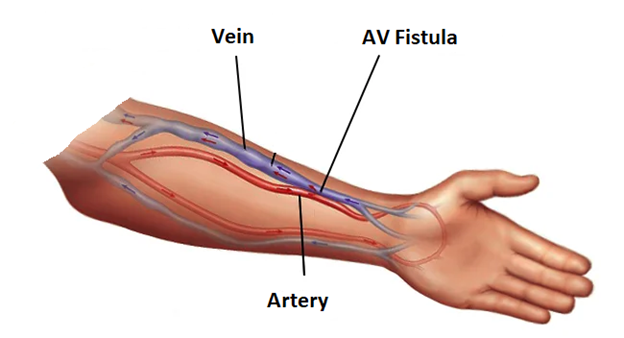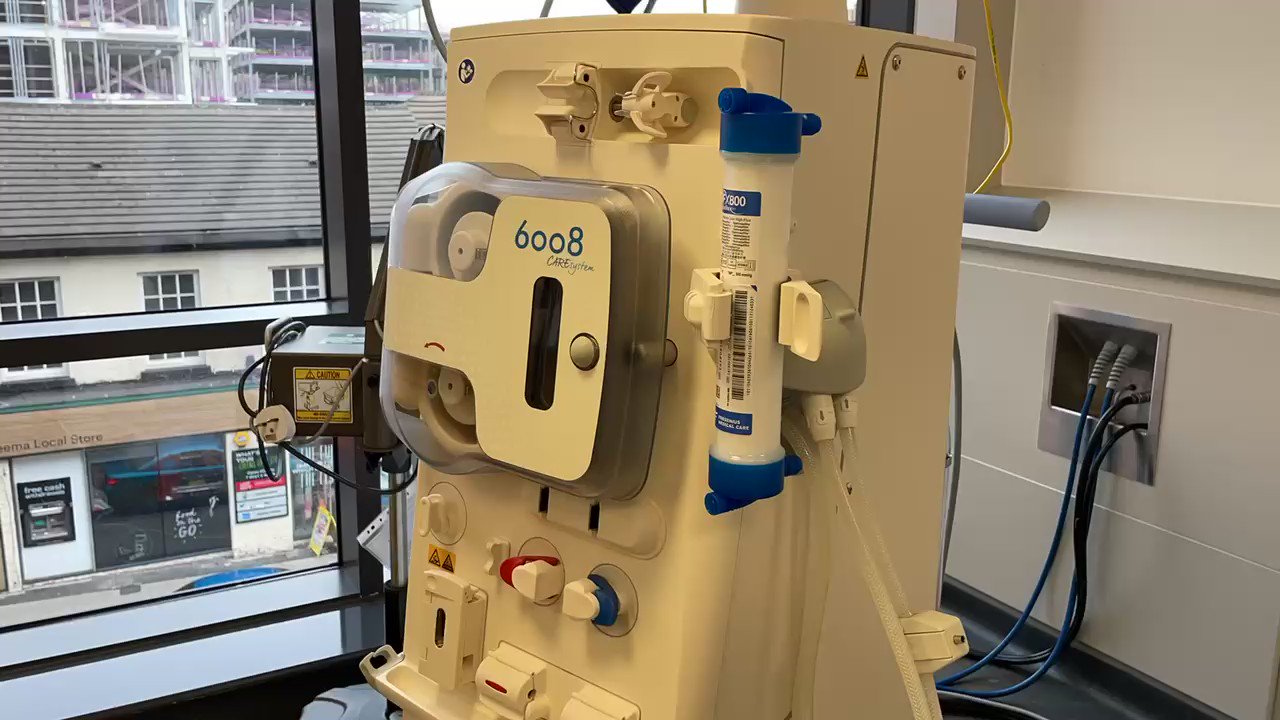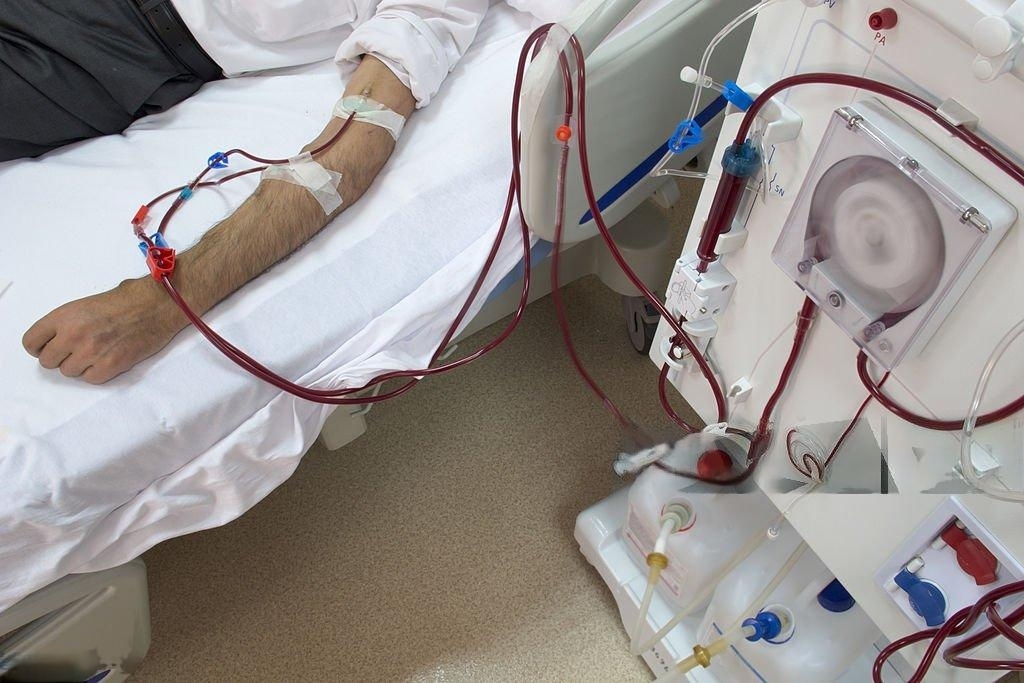What is an Arteriovenous Fistula for Dialysis Access?
For those with kidney disease undergoing dialysis, an arteriovenous (AV) fistula can be a life-changing access option. Dialysis is essential for filtering waste and excess fluid from the blood when kidneys can no longer do it effectively. A well-functioning access point is crucial to making this process as effective and comfortable as possible.

How Does an AV Fistula Work?
An AV fistula is a surgically created connection between an artery and a vein. This process typically takes place in the arm and allows for increased blood flow directly into the vein, which makes it larger and stronger over time. This enlargement enables the vein to handle the repeated needle insertions required for dialysis treatments, improving the speed and efficiency of the dialysis process.
Why is an AV Fistula Preferred?
- Long-term Durability: AV fistulas are considered the “gold standard” for dialysis access due to their durability and lower risk of infection or clotting compared to other access options, such as a central venous catheter or AV graft.
- Improved Blood Flow: The increased blood flow through the fistula allows dialysis to more effectively remove toxins, which can help improve a patient’s overall well-being.
- Reduced Infection Risk: Because the fistula is created using the body’s natural blood vessels, the risk of infection is lower than with artificial access devices.
Preparing for an AV Fistula
The procedure to create an AV fistula requires surgical consultation and planning. After the procedure, the fistula needs time to “mature,” which means it has to develop properly to handle dialysis. This process can take anywhere from a few weeks to a few months, depending on individual health conditions.
Caring for Your AV Fistula
After the fistula has matured, it’s important to take good care of it to maintain its function. Here are some tips for AV fistula care:
- Daily Check: Regularly check for a “thrill” or vibration at the site. This is a sign that blood is flowing through the fistula as expected.
- Hygiene: Keep the area clean and avoid scratching or injuring it. Never let anyone take blood or blood pressure measurements on the arm with the fistula.
- Exercise: Gentle exercises, such as squeezing a soft ball, can help promote blood flow and strengthen the fistula over time.
- Avoid Constriction: Avoid tight clothing, wristbands, or sleeping on the arm with the fistula, as these can obstruct blood flow.
Conclusion
An AV fistula can be a valuable access choice for those undergoing dialysis. By allowing for better blood flow, reduced infection risk, and long-term durability, it supports a safer and more effective dialysis process. If you or a loved one is considering dialysis access options, an AV fistula may be the right choice. Be sure to consult with your healthcare provider to discuss the best solution tailored to your needs.

